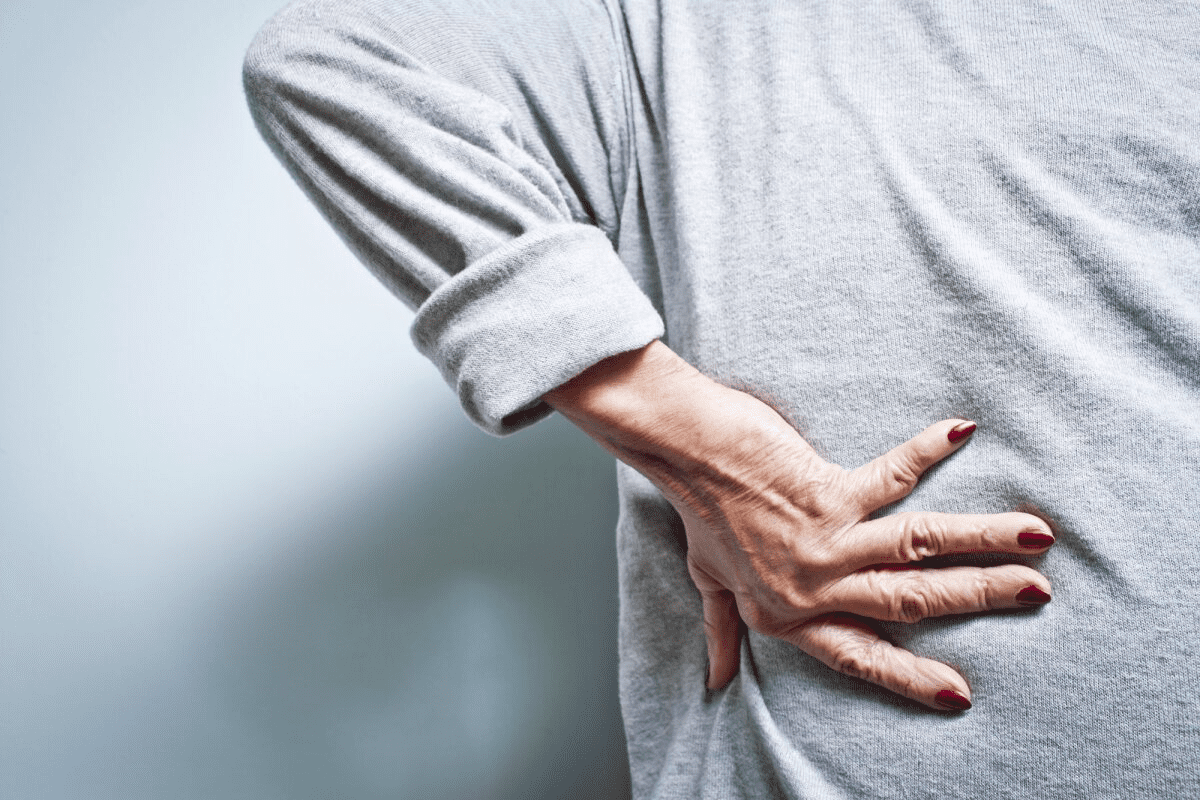Chronic kidney disease is a big problem worldwide, hitting over 800 million people. Finding it early and stopping it is key.
Keeping your kidneys healthy is vital for your overall health. Making a few simple changes in your life can really help. At Liv Hospital, we offer top-notch care for your kidneys. We mix proven methods with new ideas.
We will share 7 easy steps on how to prevent kidney disease and keep them working well. These steps can help you and your family stay healthy and avoid kidney disease.
Key Takeaways
- Understanding the global impact of chronic kidney disease
- Recognizing the importance of early detection and prevention
- Learning simple lifestyle changes to support kidney health
- Discovering the 7 proven steps to prevent kidney disease
- Accessing world-class preventive nephrology care at Liv Hospital
Understanding Kidney Disease: A Growing Global Health Crisis
Kidney disease is a major health issue worldwide, with serious effects. It’s important to know how the kidneys work and how disease impacts the body.
What Are the Kidneys and Their Functions?
The kidneys are two bean-shaped organs on either side of the spine. They are just below the rib cage. These organs are vital for our health, doing several key jobs:
- They filter waste and extra fluids from the blood.
- They control levels of important substances like potassium and phosphorus.
- They make hormones that help control blood pressure and make red blood cells.
- They keep the blood’s acid-base balance right.
The kidneys filter about 200 liters of blood every day. They remove harmful waste and extra substances.
Types of Kidney Disease
Kidney disease includes many conditions that harm the kidneys. These include:
- Chronic Kidney Disease (CKD): A slow loss of kidney function, often due to diabetes, high blood pressure, or genetics.
- Acute Kidney Injury (AKI): A sudden loss of kidney function, usually from severe illness, certain medicines, or injury.
- Polycystic Kidney Disease (PKD): A genetic disorder where many cysts grow in the kidneys, causing damage.
Alarming Statistics: The Scope of the Problem
The numbers on kidney disease are alarming. Here are some recent statistics:
- About 10% of the world’s population has CKD.
- Kidney disease is expected to become the fifth leading cause of death by 2040.
- The cost of treating kidney disease is in the billions of dollars each year.
These numbers highlight the urgent need for more awareness and prevention. By understanding the risks and taking action, we can fight this growing health crisis.
Why Prevention Matters: The Impact of Kidney Disease
It’s key to understand how kidney disease affects us. It impacts not just those who get it but also the healthcare system and society. This shows why stopping it before it starts is so important.
Quality of Life Considerations
Kidney disease can really change a person’s life. As it gets worse, patients feel tired, swollen, and have trouble focusing. These symptoms make everyday tasks hard and lower their happiness.
Key quality of life considerations include:
- Physical limitations due to fatigue and swelling
- Emotional challenges such as depression and anxiety
- Dietary restrictions to manage the disease
- The need for regular medical appointments and dialysis
Economic Burden of Kidney Disease
Kidney disease costs a lot, affecting both the person and the healthcare system. The expenses for treatments like dialysis and transplants are very high.
The main economic factors include:
- Direct medical costs for treatment and management
- Lost productivity due to the inability to work
- Costs associated with managing complications
Projected Trends: The Fifth Leading Cause of Death by 2040
Experts think kidney disease will soon be the fifth biggest killer by 2040. This highlights the need for better ways to prevent and manage it. We must act fast to reduce its impact.
To combat this trend, we must focus on:
- Early detection and intervention
- Lifestyle modifications to reduce risk factors
- Improved management of related conditions like diabetes and hypertension
Identifying Risk Factors for Kidney Disease
Knowing the risk factors for kidney disease is key to managing and preventing it. By understanding these factors, we can take steps to protect our kidneys.
Medical Conditions That Increase Risk
Certain medical conditions raise the risk of kidney disease. Diabetes and hypertension are the top causes worldwide. Diabetes harms the kidneys’ blood vessels, making them less effective. Hypertension also damages these vessels, reducing kidney function.
Other conditions that increase risk include:
- Glomerulonephritis, an inflammation of the kidney’s filtering units
- Polycystic kidney disease (PKD), a genetic disorder with numerous cysts in the kidneys
- Recurrent kidney infections or pyelonephritis
- Obstructive conditions, such as kidney stones or an enlarged prostate
Lifestyle Factors Contributing to Kidney Problems
Lifestyle choices also impact kidney disease risk. Smoking damages blood vessels and reduces blood flow to the kidneys. Excessive alcohol consumption also harms kidney function over time.
Other lifestyle factors that contribute to kidney disease include:
- A diet high in salt, sugar, and unhealthy fats
- Physical inactivity
- Obesity
Genetic and Demographic Risk Factors
Genetic predispositions and demographic factors also play a role. Family history and certain ethnic groups, like African Americans and Hispanics/Latinos, increase risk. Age is another factor; risk grows after 60.
By understanding these factors, we can tailor prevention strategies to individual needs. Recognizing and addressing these risks helps prevent kidney disease and protect our kidneys.
How to Prevent Kidney Failure: A Complete Guide
To stop kidney failure, we need a full plan. This plan covers many steps to fight kidney disease. It helps those at risk stay healthy.
The Importance of Early Detection and Intervention
Finding kidney disease early is key. Doctors can then act fast to slow it down. Regular checks and knowing your risks are vital.
Benefits of Early Detection:
- Timely intervention to slow disease progression
- Reduced risk of complications
- Improved quality of life
Combining Multiple Prevention Strategies for Best Results
Preventing kidney failure needs a mix of strategies. This includes managing health, living healthy, and avoiding harmful substances. Together, these steps lower the risk of kidney failure.
Prevention Strategy | Description | Benefits |
Managing Blood Pressure | Controlling hypertension through lifestyle changes and medication | Reduces strain on kidneys, slowing disease progression |
Diabetes Management | Monitoring and controlling blood sugar levels | Prevents diabetic nephropathy, a leading cause of kidney disease |
A Healthy Diet | Adopting a kidney-friendly diet, such as the DASH diet | Supports overall kidney health, reducing the risk of kidney disease |
Understanding the full plan to prevent kidney failure is important. By following these steps, people can protect their kidneys. Working with doctors is key to making a plan that fits your needs.
Step 1: Control Blood Pressure to Protect Kidney Function
Keeping blood pressure in check is key to protecting kidney function and overall health. High blood pressure, or hypertension, is a big risk for kidney disease. It’s vital to manage it well to avoid kidney damage.
Damage Caused by Hypertension
Hypertension can harm the kidneys by straining the blood vessels. This strain can cause the vessels to narrow and weaken. This makes it hard for the kidneys to filter waste from the blood.
Not controlling blood pressure can lead to:
- Kidney failure
- Increased risk of cardiovascular disease
- Potential for other complications such as vision loss
Recommended Blood Pressure Targets
The American Heart Association suggests a blood pressure target of less than 130/80 mmHg for most adults. Staying below this target can greatly lower the risk of kidney disease getting worse.
To manage blood pressure well, it’s important to:
- Check blood pressure regularly
- Follow the medication prescribed
- Live a healthy lifestyle, including diet and exercise
Effective Strategies for Blood Pressure Management
Managing blood pressure requires lifestyle changes and, if needed, medication. Lifestyle modifications include:
- Reducing sodium intake
- Increasing physical activity
- Maintaining a healthy weight
- Eating a balanced diet rich in fruits, vegetables, and whole grains
“Controlling blood pressure is a critical step in protecting kidney function. By understanding the risks associated with hypertension and taking proactive steps to manage it, individuals can significantly reduce their risk of developing kidney disease.”
By using these strategies and working with healthcare providers, people can manage their blood pressure. This helps protect their kidney health.
Step 2: Manage Diabetes Effectively
For those with diabetes, keeping blood sugar levels in check is key to avoiding kidney disease. Diabetes is a major cause of kidney disease. Effective management can greatly lower this risk.
The Connection Between Diabetes and Kidney Disease
Diabetes harms the kidneys over time by causing high blood sugar. This high sugar can damage the blood vessels in the kidneys. This damage can lead to diabetic nephropathy, a type of kidney disease.
“Diabetes is the leading cause of kidney failure in the United States, accounting for more than 40% of new cases.” This shows how important it is to manage diabetes well to avoid kidney problems.
Blood Sugar Monitoring and Control
Managing diabetes means checking blood sugar often and keeping it in balance. This balance can be achieved with the right mix of medicine, diet, and lifestyle changes.
- Check your blood glucose levels regularly to see how different things affect your sugar.
- Change your diet and exercise as needed to keep your blood sugar in check.
- Work with your healthcare provider to adjust your medicine if needed.
Working With Healthcare Providers on Diabetes Management
It’s vital to work with healthcare providers to manage diabetes well. Regular visits and open talks help make good decisions about your care.
“A strong partnership between patients and healthcare providers is essential for achieving optimal diabetes management and preventing complications.”
Together, people with diabetes can create a plan. This plan includes monitoring blood sugar, managing medicine, and making lifestyle changes to prevent kidney disease.
Step 3: Adopt a Kidney-Friendly Diet
Eating the right foods can protect your kidneys and lower the risk of kidney disease. A kidney-friendly diet includes fruits, vegetables, and whole grains. These foods support kidney health.
Foods That Support Kidney Health
Some foods can help your kidneys work better. Fruits and vegetables are full of antioxidants and fiber. They help reduce inflammation and promote health.
Berries, leafy greens, and citrus fruits are great because they’re packed with nutrients.
Whole grains like quinoa, brown rice, and whole-wheat bread are also good. They provide essential nutrients and fiber. This helps keep blood pressure and blood sugar levels healthy.
Foods to Limit or Avoid
Some foods can harm your kidneys if you eat too much of them. It’s important to limit or avoid foods high in sodium, sugar, and unhealthy fats. Processed and packaged foods often have high levels of these substances. Always read food labels.
People with kidney disease should also watch their intake of protein, potassium, and phosphorus. A healthcare provider or a registered dietitian can help find the right balance for you.
The DASH Diet and Other Recommended Eating Plans
The DASH (Dietary Approaches to Stop Hypertension) diet is good for people with kidney disease. It focuses on whole grains, fruits, vegetables, lean protein, and low-fat dairy. This diet aims to lower blood pressure and improve heart health.
The Mediterranean diet is also beneficial. It emphasizes whole, nutrient-dense foods. Talking to a healthcare professional can help you pick the best diet for your kidney health.
Step 4: Stay Physically Active to Improve Kidney Function
Being active is good for your health and helps your kidneys too. It can lower the chance of getting kidney disease. It also slows down kidney problems if you already have them.
Benefits of Exercise for Kidney Health
Exercise is great for your kidneys. It boosts blood flow to them, lowers blood pressure, and improves heart health. It also helps control diabetes and obesity, which are big risks for kidney disease.
Key Benefits:
- Improved blood flow to the kidneys
- Reduced blood pressure
- Enhanced cardiovascular health
- Better management of diabetes and obesity
Recommended Types and Amount of Physical Activity
The American Heart Association says you need at least 150 minutes of moderate exercise or 75 minutes of hard exercise a week. Mixing both is good too. Adding strength training to your routine is also good for your kidneys.
Type of Exercise | Frequency/Intensity | Benefits for Kidney Health |
Aerobic Exercise (e.g., brisk walking, cycling) | At least 150 minutes/week (moderate intensity) | Improves cardiovascular health, reduces blood pressure |
Strength Training (e.g., weight lifting, resistance bands) | 2-3 times/week | Enhances muscle mass, improves insulin sensitivity |
Flexibility and Balance Exercises (e.g., yoga, tai chi) | 2-3 times/week | Improves flexibility, reduces risk of falls |
Safe Exercise Practices for Those at Risk
If you’re at risk of kidney disease or have kidney problems, talk to your doctor before starting to exercise. There are steps you can take to make sure you’re exercising safely and effectively.
Precautions:
- Monitor blood pressure and blood sugar levels before and after exercise
- Stay hydrated by drinking plenty of water
- Avoid extreme temperatures
- Wear appropriate clothing and footwear
By adding physical activity to your life and following these tips, you can greatly improve your kidney health and overall well-being.
Step 5: Maintain a Healthy Weight to Reduce Kidney Disease Risk
Keeping a healthy weight is key for our health, and it helps lower the risk of kidney disease. Too much weight can cause many health problems, including kidney disease. We will look at how obesity affects our kidneys, how to set good weight goals, and share tips for losing weight in a healthy way.
The Impact of Obesity on Kidney Health
Being overweight puts a lot of strain on our kidneys. They have to work harder to clean our blood, which can damage them over time. Conditions like high blood pressure and diabetes make this worse. Research shows that being obese can harm our kidneys’ function and structure, leading to chronic kidney disease.
Setting Realistic Weight Management Goals
It’s important to set weight loss goals that are reachable. Aim to lose 1-2 pounds each week. This can be done by eating better and being more active. Always talk to a healthcare provider to find a healthy weight and make a plan that works for you.
Strategies for Sustainable Weight Loss
Successful weight loss is more than just dieting. It’s about changing your lifestyle for the better. Here are some good ways to do it:
- Eat a diet full of fruits, veggies, and whole grains
- Do regular exercise, like walking or swimming
- Keep track of how many calories you eat and burn
- Stay away from quick fixes and focus on lasting changes
- Get support from doctors or weight loss groups
By keeping a healthy weight, we can greatly lower our risk of kidney disease. It’s a big step towards keeping our health and well-being in top shape.
Step 6: Avoid Nephrotoxic Substances and Medications
Keeping your kidneys safe means avoiding harmful substances and certain medicines. Nephrotoxic substances can damage your kidneys. We’ll look at medicines that can harm your kidneys, the effects of smoking and alcohol, and safe use of over-the-counter pain relievers.
Common Medications That Can Harm Kidneys
Some medicines can harm your kidneys if used wrong or for too long. These include:
- Nonsteroidal Anti-Inflammatory Drugs (NSAIDs): These are used for pain but can reduce blood flow to the kidneys.
- Certain Antibiotics: Some antibiotics, like aminoglycosides, can be harmful, mainly in high doses or for a long time.
- Contrast Agents: Used in imaging tests, they can cause kidney damage.
It’s key to use these medicines wisely and with a doctor’s advice.
The Impact of Smoking and Alcohol on Kidney Health
Smoking and too much alcohol can harm your kidneys.
- Smoking: It damages blood vessels and reduces blood flow to the kidneys, affecting their function. It also raises the risk of kidney cancer and disease progression.
- Alcohol: Too much can cause dehydration, which hurts kidney function. Chronic heavy drinking can also lead to liver disease, affecting kidney health indirectly.
Reducing or stopping these habits can greatly help your kidney health.
Safe Use of Over-the-Counter Pain Relievers
OTC pain relievers, like NSAIDs, are used for pain. But, use them carefully to avoid kidney damage.
Medication Type | Safe Usage Tips |
NSAIDs | Use for the shortest time needed; stick to the recommended dose. |
Acetaminophen | Avoid taking too much; be careful with mixing medicines. |
Always talk to a doctor before taking any medicine regularly, if you have kidney problems.
Step 7: Schedule Regular Kidney Function Screenings
Regular kidney function screenings are key to keeping your health in check and avoiding kidney disease. They help spot problems early, so you can act fast to protect your kidneys.
Essential Kidney Health Tests
There are a few tests that are vital for checking your kidney health. These include:
- Serum Creatinine Test: This test looks at the creatinine in your blood. Creatinine is a waste product from muscle breakdown.
- Blood Urea Nitrogen (BUN) Test: It checks the urea in your blood. High levels can mean your kidneys aren’t working right.
- Estimated Glomerular Filtration Rate (eGFR): This test shows how well your kidneys filter waste. It takes into account your age, sex, and creatinine levels.
- Urine Protein Test: This test finds protein in your urine. Protein in urine can be a sign of kidney damage.
Recommended Screening Frequency Based on Risk Factors
How often you need kidney function screenings depends on your risk factors. For example:
Risk Category | Recommended Screening Frequency |
Low Risk | Every 3-5 years |
Moderate Risk (e.g., hypertension, diabetes) | Annually |
High Risk (e.g., family history, existing kidney disease) | Every 6-12 months |
Understanding Your Test Results
It’s important to understand your kidney function test results. Here’s what a nephrology expert says:
“Interpreting kidney function test results requires a deep understanding of the patient’s health and medical history. It’s not just about the numbers; it’s about how these results affect the patient’s quality of life.”
— Medical Expert, Nephrologist
By staying informed and working with your healthcare team, you can manage your kidney health better. This helps prevent kidney disease from getting worse.
Conclusion: Taking Control of Your Kidney Health
By following the 7 proven steps in this article, we can lower the risk of kidney disease. Taking control of our kidney health is key. Making smart lifestyle choices helps keep our kidneys healthy.
Managing blood pressure, controlling diabetes, and eating right are important. Staying active, keeping a healthy weight, and avoiding harmful substances also help. Regular kidney screenings are essential. These steps protect our kidney health and overall well-being.
We urge everyone, but those at risk more, to act now for their kidney health. Taking proactive steps improves our life quality and saves money on kidney disease costs. Let’s focus on prevention and take charge of our kidney health today.
FAQ
What are the most effective ways to prevent kidney disease?
To prevent kidney disease, control your blood pressure and manage diabetes. Eat a diet good for your kidneys and stay active. Keep a healthy weight and avoid harmful substances. Also, get regular kidney function tests.
How does high blood pressure affect kidney health?
High blood pressure can harm the kidneys’ blood vessels. This makes the kidneys work less well. Keeping your blood pressure in check is key to protecting your kidneys.
What is the connection between diabetes and kidney disease?
Diabetes is a big cause of kidney disease. High blood sugar can damage the kidneys. Managing diabetes well is important to avoid kidney disease.
What foods support kidney health?
Eat foods low in sodium and high in fiber and antioxidants. Fruits, vegetables, and whole grains are good for your kidneys. The DASH diet is also recommended for kidney health.
How often should I get my kidney function screened?
How often you need kidney function tests depends on your risk factors. If you have diabetes or high blood pressure, or if your family has kidney disease, you should get tested more often.
What are the risks of using over-the-counter pain relievers on kidney health?
Using too much of certain pain relievers, like NSAIDs, can harm your kidneys. Use these medications wisely and only as your doctor advises.
How can I make my kidneys function better?
Follow the 7 steps to prevent kidney disease. This includes managing blood pressure and diabetes, and living a healthy lifestyle. These actions can help your kidneys work better.
What are the symptoms of kidney disease?
Kidney disease often has no symptoms early on. As it gets worse, you might feel swollen, tired, or notice changes in how you urinate. Getting regular screenings is key to catching it early.
Can kidney disease be prevented?
While some risks can’t be changed, many cases of kidney disease can be prevented. This is by managing health conditions, living a healthy lifestyle, and avoiding harmful substances.
How does obesity affect kidney health?
Being overweight increases the risk of kidney problems like diabetes and high blood pressure. Eating well and exercising can help keep your weight healthy and protect your kidneys.
What is the impact of smoking on kidney health?
Smoking can damage the kidneys’ blood vessels and lower their function. Quitting smoking is a big step in protecting your kidney health.
How can I understand my kidney function test results?
Talk to your doctor about your test results. They can explain what your kidney function means and what steps you should take next.
References
Preventing Chronic Kidney Disease – https://www.niddk.nih.gov/health-information/kidney-disease/chronic-kidney-disease-ckd/prevention




































